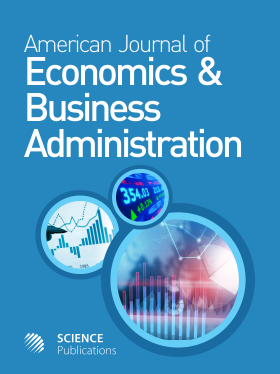Leveraging Appreciative Intelligence for Positive Enactment in Times of Uncertainty: A Case Study of a Small Investment Firm
- 1 Case Western Reserve University, United States
- 2 George Mason University, United States
Abstract
Problem statement: How do we develop a complex understanding of markets and environments? Are markets and environments concrete entities that exist “out there” or are they socially constructed by human imagination and intentional language use? Approach: Using a case study approach, the interactions in a small investment firm were analyzed to bring to surface the complex relationship among markets, enactment and learning, often from ambiguous events in unstable environments. Weick’s framework of enactment and components of appreciative intelligence theory are used to explicate how the CEO of a small investment firm engages in intentional conversations and dialogue to reduce cognitive dissonance brought about by fast changing and often conflicting financial data and creates new opportunities. Results: Using Weick’s notion of enactment, we showed that managers often create their environments through cycles of perceptions and action whereby perceptions of the environment leads to particular actions and choices by organizations. Such a process made use of two of the three components of appreciative intelligence: reframing to recognize opportunities and engaging in actions to bring the new possibility to fruition. Conclusion: The case study showed that enactment and several components of strategic management use the same processes and that an opportunity existed to develop an integrated model between the two perspectives. Results indicated that strategic actions were meaning-laden stimuli that feed selective information to decision makers about market uncertainty. The case study of the investment firm also revealed how the two components of appreciative intelligence, reframing to recognize opportunities and bringing the future to the present, help managers under high stress who operate in fast paced environments make innovative use of ambiguous data and produce positive outcomes.
DOI: https://doi.org/10.3844/ajebasp.2010.147.152

- 4,406 Views
- 2,956 Downloads
- 3 Citations
Download
Keywords
- Social construction of environment
- retrospective sense making
- reframing
- opportunity recognition
- ambiguous events
